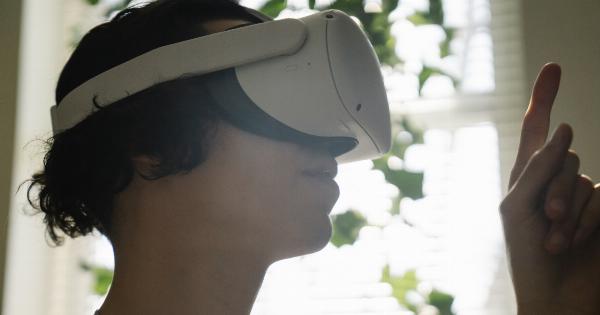Vision impairment can occur due to a variety of reasons such as ageing, genetics, injury, or disease. It can range from mild to severe, and can greatly affect one’s daily life.
However, with the right mindset and strategies, people with visual impairment can live fulfilling, productive, and independent lives. This article aims to provide practical tips and solutions for coping with vision impairment.
Get Regular Eye Checkups
Regular eye checkups are essential for maintaining good eye health and detecting any vision problems early on.
It is recommended that adults get a comprehensive eye exam at least once a year, especially if they have a family history of eye diseases such as glaucoma, macular degeneration, or cataracts. By getting your eyes checked regularly, you can catch any vision problems in their early stages and take steps to manage them effectively.
Use Assistive Technology
Advancements in technology have made it easier for people with vision impairment to overcome daily challenges. For instance, screen readers and magnifiers can help people with low vision read and navigate digital content.
Smartphones and tablets have accessibility features that allow users to adjust text size, contrast, and color schemes to make them easier to read. There are also many apps available that can help with various tasks such as identifying objects, reading barcodes, and locating nearby services.
Accessorize Your Environment
Adapting your environment to your visual needs can make a big difference in your daily life. For instance, using high-contrast colors for walls, floors, and furniture can make it easier to navigate your home.
Installing brighter lighting with dimmer switches can help you adjust the lighting to your needs. Labeling items with large print or braille can help you easily identify objects. Using textured tape or contrasting color strips on steps or edges can also help you orient yourself within your environment.
Learn New Skills
Learning new skills can help you adapt to your vision impairment and maintain your independence. For instance, learning braille or tactile marker systems can help you read and navigate printed material.
Learning to cook, clean, or garden using adaptive tools and techniques can help you maintain your household. Learning to use public transportation or GPS can help you get around your community. Joining support groups or attending counseling sessions can also help you cope with the emotional challenges of vision impairment.
Stay Active
Staying physically active is essential for overall health and wellbeing, and can also help you cope with vision impairment. Regular exercise can improve circulation, reduce stress, and boost your mood.
You can choose activities that are low impact and safe, such as walking, swimming, yoga, or cycling. Participating in group exercise classes or joining a sport team can also help you stay social and connected to others.
Find Your Support System
Living with vision impairment can be challenging, but having a support system can make all the difference. This can include family, friends, healthcare professionals, or support groups.
It’s important to surround yourself with people who understand your challenges and can provide encouragement, advice, and emotional support. You can also seek out resources such as advocacy groups, assistive technology vendors, or community centers that offer programs for people with vision impairment.
Plan Ahead
Planning ahead can help you anticipate and prevent potential challenges. For instance, you can make a habit of keeping things in the same place to make them easier to find.
You can purchase adaptive tools and gadgets such as talking clocks, watches, or calculators. You can also plan your travel routes, organize your schedule, and notify your healthcare providers and emergency contacts of your vision impairment.
Keep a Positive Attitude
Finally, keeping a positive attitude can help you cope with vision impairment and live life to the fullest.
While it’s natural to feel frustrated, sad, or discouraged at times, it’s important to focus on your strengths, accomplishments, and goals. Celebrate small victories, maintain a sense of humor, and embrace new challenges. With the right mindset, you can overcome any obstacle and lead a practical, fulfilling, and happy life despite your vision impairment.


























